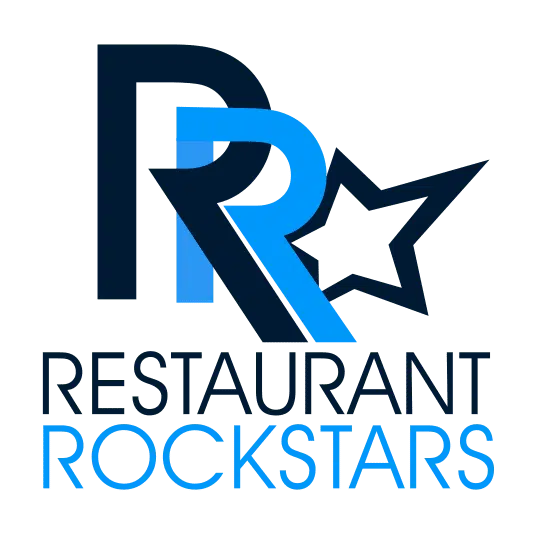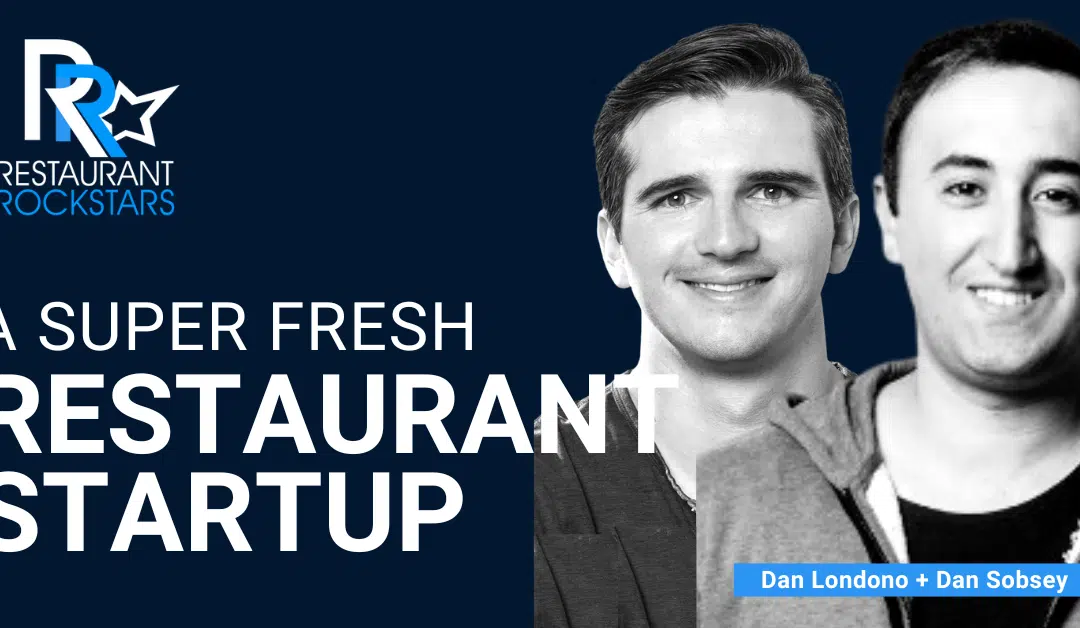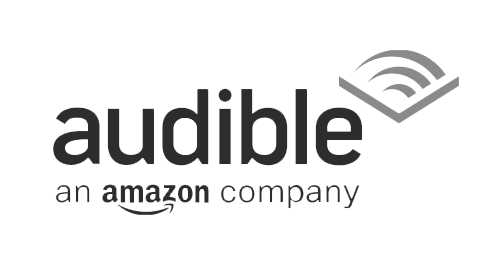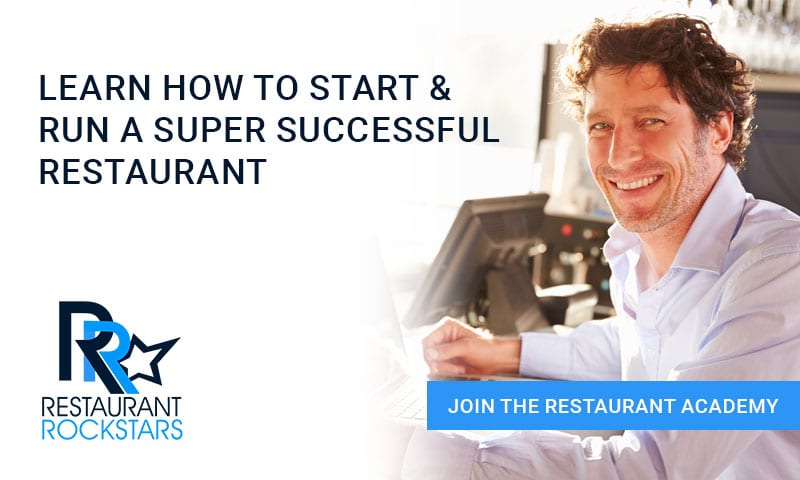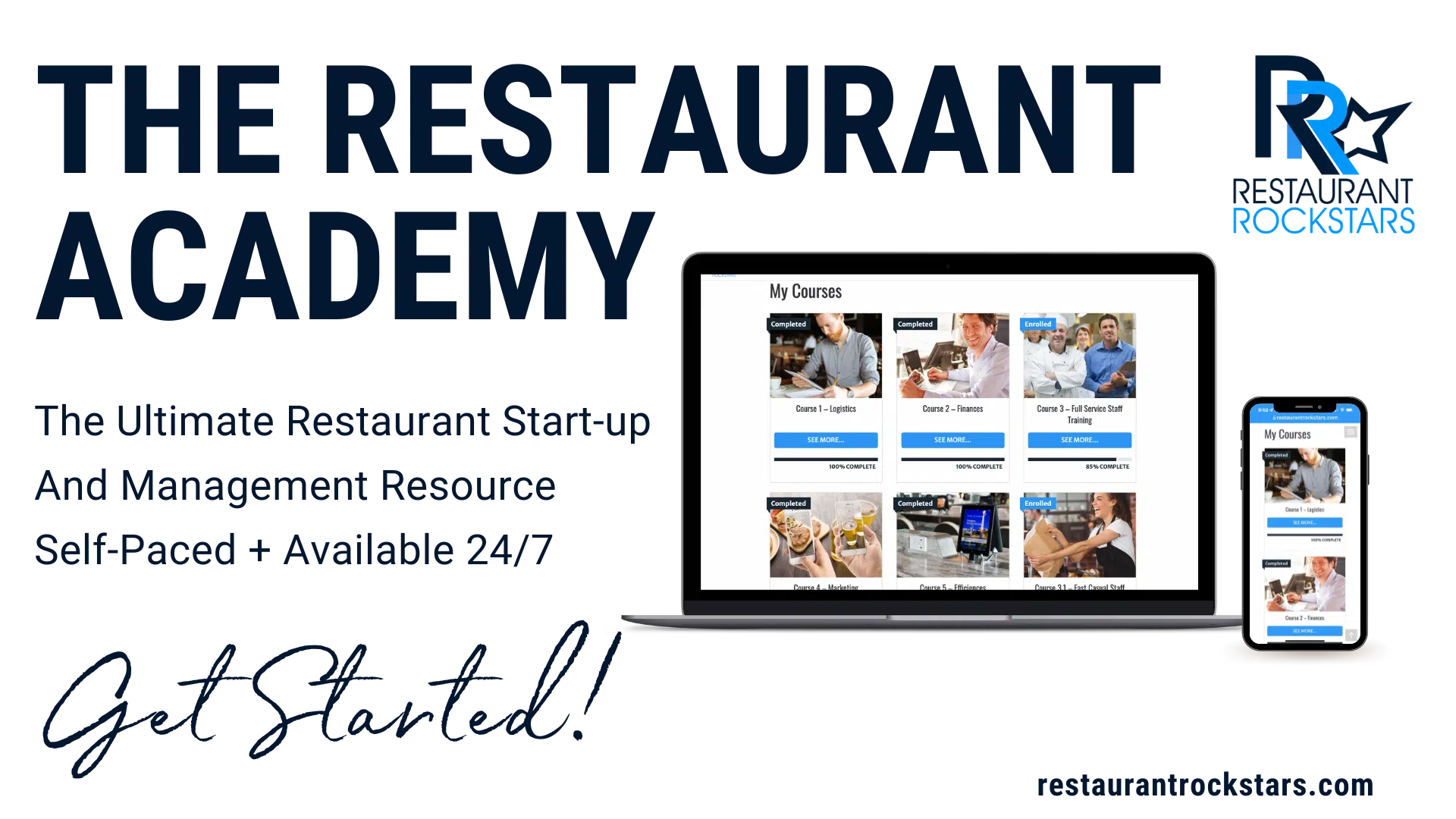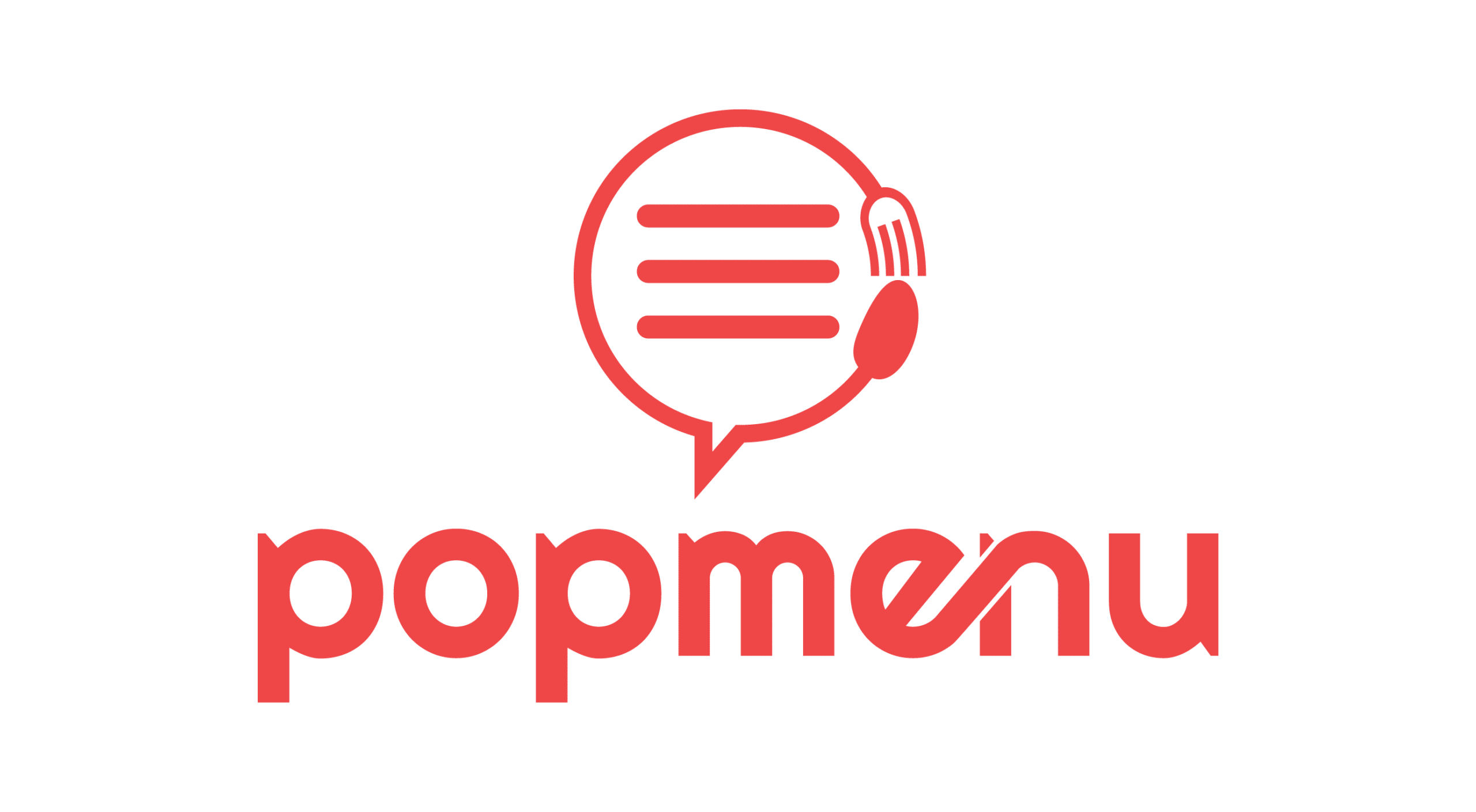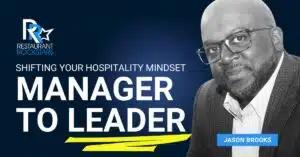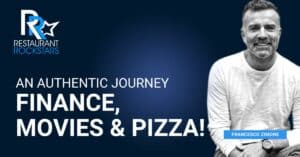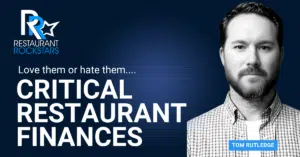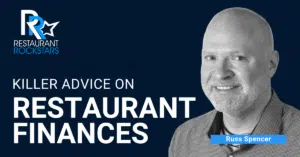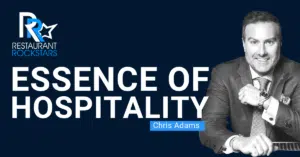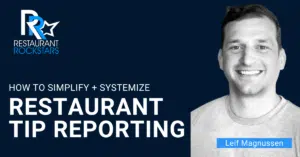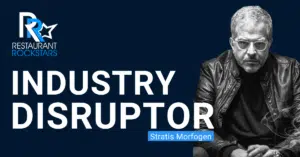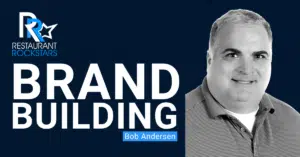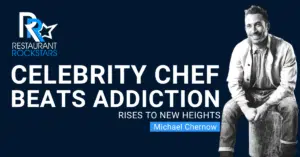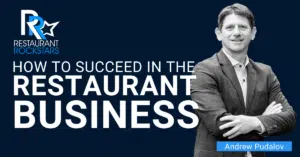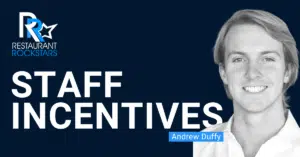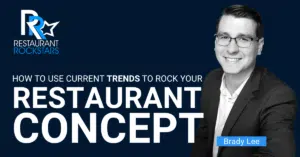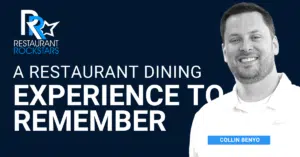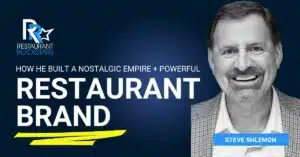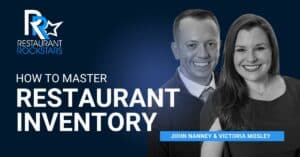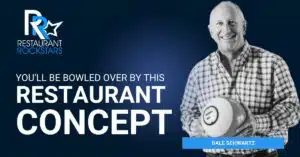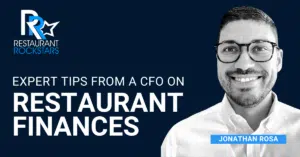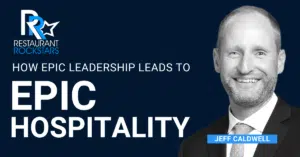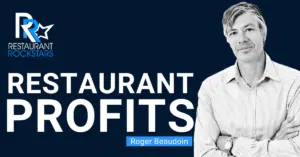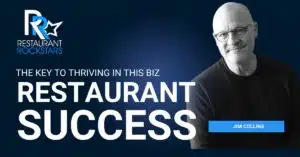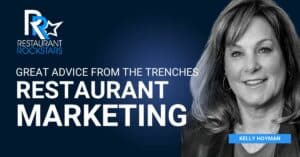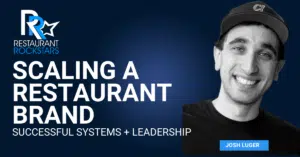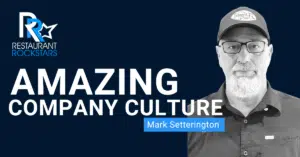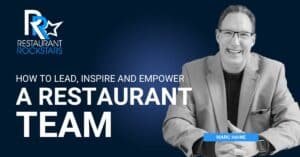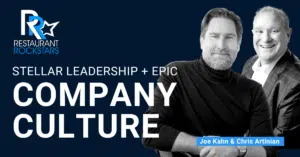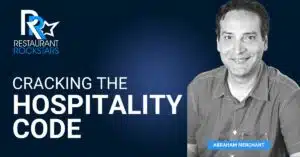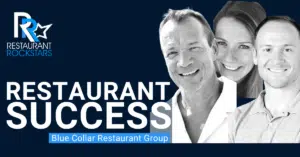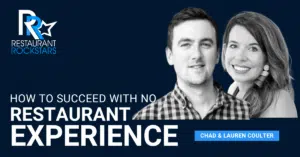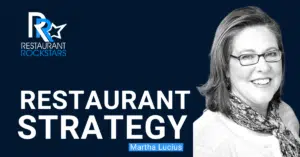Restaurant Rockstars Episode 349
A Super Fresh Restaurant Startup Success Story
LISTEN HERE OR ON YOUR FAVORITE PODCAST PLAYER
Prefer to watch the interview?
Click the video below.
We all have a restaurant startup story.
Maybe, you had great recipes, or possibly you just saw a couldn’t turn up opportunity. Many of you had prior experience, but some, like me, and my guests today had virtually no restaurant experience at all before startup.
In this episode of the Restaurant Rockstars Podcast, I’m speaking with Dan Londono and Dan Sobsey, co-founders of “Alfalfa”. Alfalfa’s restaurant startup success began at a local farmer’s market and now they’ve grown bi-coastal.
Listen as Dan & Dan share:
- The brainchild and vision for “Alfalfa”
- Why salad and donuts make a successful menu.
- Their philosophy of “joy through balance”, and what this means to their team and their business model.
- How the pandemic led to growing in California after their initial restaurant startup in New Jersey.
- The key attributes they look for in new hires plus onboarding best practices.
- Alfalfa’s company culture that is embraced by staff and guests alike.
- Starting a successful catering program with pizzaz!
And of course, the importance of local presence and giving back to the communities they serve.
Watch or listen to this episode, have a vision for moving your business forward and then go out there and Rock YOUR Restaurant!
Roger
Connect with our guest:
Instagram: @eatalfalfa
Facebook: @eatalfalfa
Twitter: @eatalfalfa
0:00
We realized so much of what we wanted to build was not really just a product, but an experience. And I think that was a really early insight that then really played out what we really became, began getting a big following. And ultimately, by the end of the season in November, we would have lions every single Saturday, and just tons of people excited to try our food. It was because of, you know, an entire year’s worth of getting to know our customers that enabled us to then grow them seeing the passion that we had for the experiences that we were trying to create. And ultimately, what we were trying to do is solve our own problem and Hoboken of going to a place that where you can eat healthy and you’re also treated super well.
0:40
Thanks for joining me once again on the restaurant rockstars podcast. Super excited today to introduce you to Dan Londono and Dan Sobsey, co founders of a bicoastal concept called Alfalfa. What’s their menu salad and doughnuts? You might think? Well, that’s unusual, but you got to stay tuned because their story is interesting. They started from very humble beginnings, virtually no restaurant experience prior farmers market to locations now in New Jersey and California. They’re doing well we’re going to talk all about their challenges, past challenges, experiments, current challenges, and what their secret to success really is. So stay tuned. Thanks to the sponsors of this week’s episode, Popmenu, Verge Funding, The Birthday Club, and of course, The Restaurant Rockstars Academy. Now on with the Episode
1:34
You’re tuned in to the restaurant rockstars podcast powerful ideas to rock your restaurant, here’s your host, Roger Beaudoin.
1:51
Guys, I’ve always believed in systems to run a really effective restaurant, they say you have a system, if you can walk away and leave your place for a day, a week or a month. And it’s just as successful, just as profitable when you return, if not more. So. Now, the staff are really the foundation of this. And it all comes down to the word empowerment, you know, if you’ve got really great people, and if you can develop those people that have your back, and to run it as if they owned it, treat everything as if they had to pay for it. That’s a super powerful system. Once you have the staff in place, it really comes down to three things. It comes down to one staff training, development, recognition and rewards to create what I call your dream team, how to empower your team to think and act like owners and to treat everything as if they owned it, and had to pay for it, and to deliver amazing guest service experiences to your customers to serve and sell because sales are the lifeblood of your business, not allowing order takers on the floor. But teaching everyone to recognize opportunities and make suggestions that we know that customers will enjoy and appreciate. It all comes down to training, training, training, number two cost controls and maximizing profit. You need to know your critical financial numbers on a weekly basis. And it only takes 10 minutes, but you need to understand these things. How about your daily breakeven how much it costs you to open the doors to your restaurant each day. Inventory is not just walking around and figuring out what your order is that week. It’s knowing the true value of your goods on hand at any given point in time and you need this information to be able to calculate your true food and beverage costs. Your labor costs are also important and running a weekly labor analysis against sales. If you know these things, I can teach you how to maximize your profit and control your costs. And then number three is what I call marketing firepower and affinity. You know, affinity is defined as a really powerful sense of loyalty and belonging where your customers become raving fans, and they’re like an army of brand ambassadors spreading the word for your restaurant. Well, all of this is included in the restaurant rockstars Academy. If you really want to take your restaurant to the next level post pandemic, things are heating up customers are coming back. Now’s the time to really maximize your opportunities, maximize your sales and profits and create that dream team staff. Check it out at restaurantrockstars.com It’s the Restaurant Rockstars Academy.
4:27
there are many elements to consider when growing your restaurant. are you connecting with diners enough and with the right message? Could your kitchen be putting out more orders than your dining areas have room for? Well it can be overwhelming especially when the reason you got into this business is for the food and the people. That’s why restaurants get popmenu. Popmenu is the marketing tech platform designed to make growing your restaurant easy, so you don’t have to grow it alone. With popmenu you can capture more guests and their preferences through your restaurants website that’s designed to easily collect contact information and data so you can see what your guests love and why they dine with you. Connect and build authentic relationships with guests by using modern technology that personalizes marketing. Make all your systems work better together, improve margins and conquer the chaos of your restaurants digital presence pop menu has a special offer for my listeners. For a limited time, get $100 off your first month plus lock in one unchanging monthly rate at popmenu.com/rockstars Go now to get $100 off your first month at popmenu.com/rockstar.
5:38
Hey, welcome back, everyone. This is the restaurant rockstars podcast and with me, Dan and Dan. Hey, Dan, and Dan, how’s it going today?
5:46
Roger, how are you?
5:47
Great, super excited to have you guys. This is a really exciting story and concept is at the core of entrepreneurship and having an idea and a brainchild and then growing that concept and all the bumps and experiments along the way and then finding success and then growing bicoastal. I mean, that’s huge. So we’re going to be talking about your concept today called alfalfa. But before we do, we’re going to talk about your backstories. And if you guys have ever worked in the restaurant or hospitality business before alfalfa, tell us
6:17
Great, thanks, Roger. So my name is Dale Londono. And I’m actually originally from Colombia. So I was born in Colombia, and I moved to the States when I was eight. And my first job before going to college was in restaurants. So I worked as a dishwasher, and then as a waiter. And then I was actually promoted to being our salad chef at this little Italian restaurant in the town that I grew up in New Jersey. But yeah, I went on, and actually, my restaurant experience didn’t come back around full circle. until five years ago, we co founded alfalfa. So I went to Cornell, I studied mechanical engineering. I wish I went to the hotel school. You know that the time I didn’t know they miss Hotel School? Yeah, yes, that’s right. Amazing alumni that have been really helpful, actually, over the years. And I spent eight years in management consulting, actually at a college. And so I learned a lot about business, I learned a lot about problem solving, and a lot of skill sets that I think are actually really helpful in the restaurant industry. But yeah, when we started this, and you know, Dan can talk a little bit about our founding story. We were super outside in, you know, we didn’t really come in with preconceived notions. And we really kind of started everything that we do today, from scratch with no experience, really operating restaurants. And so it’s been amazing. I serve as our CO CEO, and really excited to kind of continue on the journey and kind of continuing to inspire joy.
7:36
That’s super cool. Yeah, what a great story that is. And again, that just speaks to the core, you mentioned something before we get into Dan’s origin story, I’m really interested in, you know, your the business skills that you develop, you now apply to the business. And I’m a huge believer in systems and Systemising operations. And there’s so many restaurants out there where the owner operators are just tied to the business, and they’re just kind of running by the seat of their pants. And it really comes down to those financial systems and marketing systems and, you know, human resources systems and having everything dialed so that literally the place runs without the founder, even though you want to be part of it. There’s an exit strategy there. So I’m really glad that you you brought that up. Cool. Dan, why don’t you tell us about the founding story and where the brainchild came from. And tell us the year that all this started the idea generation what the process was like starting this company. Take us back.
8:31
Yeah. First of all, thanks for having us on the podcast. Super excited to share the story. Yeah, so Dan Sobsey, also one of the co founders as well. Alfalfa actually started as an idea in 2017, on a whiteboard in our apartments. So myself, and Dan, we all lived and worked close to each other in the metro Newark area. So we all worked in Manhattan. And then you know, at the time, we kind of just zoomed out, we were always very entrepreneurial, we love business. Growing up, my parents actually owned and operated organic grocery store, super mom and pop shop, my father would go to the market twice a week can pick everything Hunts Point. So I grew up around that entrepreneurial business mindset. So anyway, altogether 2017 We’ve always been shooting business ideas back and forth at the espresso bar in Midtown. And we just zoomed out and we’re like, we love food. And with the lunch options in our area we and healthy options, we just felt that they were insufficient. And so zooming out, we looked at, there’s 20,000 McDonald’s, there’s 15,000 subways, and looking at the salad and the salad category in particular, I think there was less than 200 stores of the major players. So we just we looked at the data and almost couldn’t believe it and a lot of our problems really rose from when we got home. After working all day in the city. We were eating at the bar across the street, whether it was a mix salad or an attempt at a healthy meal, it just wasn’t doing it. So that’s alfalfa star is a whiteboard concept. And shortly after that, we had a few meetings and people were telling us about starting a business and all the things that took, and we have this master idea we are, we’re going to, you know, raise some money and do this big store and all these things. And we actually had a meeting where someone sat us down, I was like, listen, kids, it doesn’t work that way you need, you need to work your way up from the bottom. So that meeting actually really changed our philosophy on starting starting a business starting small, and really getting our hands dirty. So in 2018, you know, we were iterating, a lot more just coming up with the concept. And we ended up getting a chance to be a farmers market vendor at the Garden Street Farmers Market in Hoboken. So we were actually and that was in May 2018. So we were the first vendor at that farmers market. To sell live food, all the other vendors were farmers and grab and go frozen foods and prepared foods. So we were actually, you know, every single Friday, we would prep at a Commissary Kitchen, in our apartments, even though we weren’t allowed to visit you have to do whatever it takes. And we ended up setting up shop every single Saturday, from 8am till 3pm. Selling our salads, we put our heads together came up with a really small core menu of four items. And we just, you know, we worked our tails off and we talked to every single customer. Using my father’s produce background, we ended up sourcing really high quality produce with the local grocery store that my father ended up selling. So we just started to build a story and talking to customers, people really felt the need like wow, like this is this is really great concept, the food’s delicious. It’s high quality. And we really need something like this year, and just every single weekend having those conversations really validated our business idea. And towards the end of the farmers market. I actually remember I left my job in finance in the fall prior and during our farmers market period of May 2018. through November 2018. I remember hopelessly walking around Washington Street looking for a lease space. You know, we had been on a few spaces. Most of the landlords told us, you don’t have the experience to do this. No idea what you’re talking about. So it was you know, as a hope of six months, and then actually towards the end of the month towards December. My mother by chance, she was actually an amazing home chef. She ended up sparking a conversation with family friends and a retiring restaurant tour, who is retiring his luncheonette diner on Washington Street. So she was like you guys need to talk to him. I think there’s something here. So we ended up crafting an email, and actually proposing Hey, we would love to do a pop up in your space. Give us a couple months, let us prove ourselves. And let’s just see what happens. So after two months, working every single day, every single night with a staff of myself, my co founders and to prep cooks, we were selling the alfalfa menu from the farmers market as a pop up in the luncheonette on Olympia, Washington, which is where our current store is. So that would be during the day we were a ghost kitchen, from nine to five, and then from five to nine, when the diner closed, we were converted into a makeshift alfalfa, we would bring up we would, you know, drop the drapes with our logos set up this makeshift salad line. It was just a labor of love, like we knew financially, this is not going to make anything but we knew just every customer interaction. Every salad we sold, every review we got was just making was just, you know, building the footsteps or what would come and at the end of the two months after showing our p&l, and really just our tenacity and our, our mission and our vision. We ended up taking over that space and the restaurants who are retired. So that’s where we started with our first store. And what I’ll add to that is the concept really started as a healthy food concept. We were just selling for very basic salads that we iterated and came up with at the farmers market. But when we first opened, there was a baker who existed there who was making cakes and doughnuts and sort of pastries, and we needed staff. So we looked around and we’re like, you’re hired, you’re hired, you’re hired, one of them turned out to be the baker. And we were like, Hey, this guy makes incredible desserts and pastries and doughnuts. So we ended up praying Even doughnuts on the menu reinventing the old recipe to make it more of an alfalfa recipe. And what we noticed was the combination was bizarre. But it made people think twice about coming into our place for the good reasons of like, Hey, this is interesting what’s going on here. And the more we were in the store, the more we realized that people just felt happy in our store. And this salad and donut thing was something was brewing there. And we learned after a lot of reflection and operating, we thought that we are healthy guys at heart, we but we also believe in indulgence and just happiness. So we ended up coming together and actually settling on that our mission is to inspire joy through balance. And that’s where the salad and the doughnuts and the wraps, and also the additions of the breakfast burritos and the coffees just all comes together and creates a great environment.
15:55
Okay, that’s quite a story. So joy through balance, I get the happiness part. And obviously, the vibe of the store contributes to that. I’m going to get to that. But before we do, let’s talk about you mentioned the donuts got it sort of reformulated to meet more of the alfalfa sort of ethos is that in terms of a more healthier donut, or it’s still an indulgent donut that adds the joy to your healthy balanced that I’m eating healthy with the salad, but I want to indulge a low and have a doughnut. Tell me about that. I’m a little confused.
16:27
Yeah, absolutely. So we, we wanted it to be an indulgent snack, but really not too heavy. So we use non GMO fryer oil. We actually recently made our doughnuts, all gluten free. So we work with like really high quality ingredients. You really don’t. You don’t really feel it’s just a treat. It’s Yes. And you know, what we found was our donut sales are definitely better on the weekends. But at the same time, they’re just meant to be just a small treat.
16:57
Okay. Do you have multiple, like lots of varieties? Or is it like a couple of signature flavors? Or how does that work? Yeah,
17:07
yeah, we have a rotating menu. We have five core flavors. And then we try to iterate and create new flavors seasonally.
17:15
Nice. I’m sure that huge on weekends that people just take boxes of donuts out of the place. They might eat a salad, but I’m taking doughnuts home, or that’s really Yeah, I love that. I mean, you got the coffee. You mentioned burritos, you’ve got salads, of course, you’ve got bowls, all that kind of stuff. So really well rounded menu here. Let’s go back to the farmers market, transitioning to the pop up did a lot of those people that kind of discover you at the farmers market kind of follow you to the pop up? And that kind of seated your core audience? Or did you do any specific marketing to attract attention when you finally became a bricks and mortar, like tell us about the marketing story and how people the buzz built in, you know, people that had like minded thoughts about I want to eat healthier, I suddenly discovered something great. I’m going to tell people, was there a big buzz in the marketplace? And people just said, Hey, you got to check out this place alfalfa? What’s your story there?
18:07
Yeah, I would say it was really those weekly customer interactions that we were having, both throughout our early days. And like Dan said, I mean, the tenacity to be there at ADM, setting up this tent every Saturday, and being there all day and all the elements and then talking to people and a lot of them were like, You guys are crazy. Why are you doing salads out in a farmers market like this is so hard. And they were right, it was really hard. But through those conversations, we started talking about what’s important to us. And you know, eating healthy. And we realize so much of what we wanted to build was not really just a product, but an experience. And I think that was a really early insight that then really played out well, we really began began getting a big following. And ultimately, by the end of the season in November, we would have lines every single Saturday and just tons of people excited to try our food. And so it really wasn’t an overnight you know, kind of home run. When we got into the pop up, it was because of you know, an entire year’s worth of getting to know our customers that enabled us to then grow the pop up audience. And then by time we opened our real store in March of 2019. We did already have an existing base of customers. And it was really just again, to Dan’s point them seeing the passion that we had for the experiences that we were trying to create. And ultimately, what we’re trying to do is solve our own problem and Hoboken of going to a place that where you can eat healthy and you’re also treated super well. And you leave that experience feeling better than when you walked in. And that’s all we’ve been trying to scale for the past five years.
19:41
So it’s a fast casual concept and obviously efficiency and speed of service is really important. Do you prep a lot of these salads in advance even though we’re talking about high quality ingredients and made from scratch and all that kind of stuff, but how quick can you serve people especially when this lineup the doors? Was that a challenge? Have you sort of ironed the bugs out for that?
20:02
Yeah, I would say it was definitely a challenge for us. But we have been fortunate enough to hire really talented skilled team that’s actually been with us since day one, four years ago in the Hoboken store that has actually, you know, we are very low ego, we listen to people. From a non restaurant operator perspective, we were all ears listening to our staff on how this can, you know, best operate. So we ended up building a lot of internal systems together. Salads went from being made by us in 15, to 20 minutes with a six person line to dirty, you know, 15 to 20 seconds with a full team. So we’ve really scaled up our production. And a lot of that just comes from building systems with the team listening and always being open to feedback. Yeah, there,
20:52
there are seats in the stores too, right? There’s like outdoor patios that look like in Santa Monica, and you have indoor seating as well. And people take out a lot of this food about online ordering all that tech is in place. But tell us about the square footage of each location right now. Because I believe there’s four locations, or there’s three with one coming quickly. It’s like telling me about that.
21:16
Yeah, and so we’re currently operating three stores, we’re opening our fourth in LA in the next two months. And yeah, I think from the very beginning, we kind of thought from a first principles perspective, how to approach our real estate strategy. And so the idea was, we wanted to make it to your point really quick, where you can walk in and quickly hit your food. And so what we discovered a little bit by accident is that if we don’t have the food out in front of you in the solid line in front of you, and we actually divide up our team, between folks that are focused on the food, and focused on the experience, which is not a new concept in restaurants, of course, but it felt new in the salad space in the fast casual space, what we found is that we could actually hire and retain way better talent that was we faster and better at the food side of things. And actually, they would they love those jobs even more, because they don’t, you know, a lot of folks don’t want to deal with customer experience, they just want to focus on the food. And then same thing, were able to hire and train and retain folks who are really focused on hospitality and the experience. And what we found is that ultimately, we couldn’t, we today can perform, you know, very, very quickly, with leaner staff, and then a lot of the players in the space. And ultimately, the customer experience, you know, when they walk in, it’s really nuanced, you know, it begins to feel less like a restaurant that’s like super busy, and more like a place where you want to spend time and that makes you happy. And where you can happen, get a great meal. And that’s that’s actually very important to us.
22:37
So as labor and staffing been a challenge in any of the stores or you’ve created sort of a an environment that people are really happy working in. And you know, that joy and balance thing obviously translates to your staff. But has it been a challenge finding labor, like everyone’s struggling with that, as you know?
22:55
Yeah, I think labor will always be a challenge. I think we’ve you know, from day one, we believe that retention creates consistency, which creates a much better product and customer experience. So we’ve just focused a lot on our training and development programs internally. And, you know, we feel that from the second somebody walks into the door, it actually starts with the interviewer of what our culture is about. So building out our values, sharing our mission, talking about the story, and making sure that people understand why they’re there and focusing on the why, versus just, you know, just cut lettuce just cut a tomato, we’re talking about the much bigger picture. And obviously, everything’s always a work in progress with training and development. But it’s something we take super seriously. And we’ve been very fortunate enough to find great people who have really stuck around and continue to grow the network. So yeah.
23:49
All right, walk us through walking into a typical alfalfa location. And obviously, color plays a part and vibe and ambiance and all that, how would you describe the vibe of your stores? Are they all different? Are they all sort of uniquely themselves? Are they Is there a common thread if I went into, you know, the Santa Monica store versus the Jersey City store versus the Hoboken store? You know, tell me, is it all the same? Is it different?
24:13
Yeah. Do you think that then? Sure. So in terms of the different alpha experience, so I would say we’re predominantly a digital business. So I would say, you know, anywhere between 60 to 80%, depending on the season will be, you know, have a slew of digital orders. And then, you know, in terms of in terms of our vibe and the aesthetic of the store, we actually work with a designer who is a really close friend of ours, who spends a lot of time in each neighborhood that we want to open, and we really try to make it feel like your local alfalfa. It’s really not a cookie cutter approach at all. And we take that down from design all the way into our sourcing. So for example, in Hoboken, we ended up buying our fresh mozzarella from next door from A family who has been making it for 40 years by hand every single morning. So not only, you know, taking that local design aesthetic approach to making sure that it feels comfortable not Cheney, and also just refreshing and bright, but also telling that local story and connecting with local suppliers and the community
25:20
who came up with the name and why alfalfa, obviously, it’s got a connotation of health to it, or healthy choice food. But did you throw a zillion names at the wall? And that one just stuck? Like, how did how did you come up with the name? And what is it supposed to evoke?
25:37
Yeah, pretty much that, you know, we literally had a gazillion names on a whiteboard and have to hand it to our third co founder, Andrew, I think he was the one that put off off on the board. And, you know, we all liked it for different reasons. You know, it just looks beautiful. When you look at it, there’s some symmetry to it to your point and connotes health, which is really fundamentally what we were going after. I happen to like it, because it started with an A. So as a startup, you’re like, Well, you know, if we’re gonna end up on any list, it’d be great to be at the top. So let’s let’s go with the one with the A on it. But yeah, it really was as simple as that. And, you know, obviously, there’s the movie Little rascals and you know, there’s things attached. Ultimately, we just we like the way it look and the way it sounded.
26:19
Okay, how did the pandemic sort of shape your experience and ultimately lead to a bicoastal location in California?
26:28
Yeah, so we are our real estate strategy was really, very residentially focused even before COVID. So, you know, we purposely wanted to open in Hoboken and, and serve these communities that are density residential, that are not, you know, midtown Manhattan. So you know, COVID happened, we closed for a month, like anyone else, I still remember, we actually closed on my birthday bill the whole days, which is depressing. And after a month, you know, we reopen and we didn’t know what would happen. And, you know, thankfully, we’re so grateful, our community really rallied around us and really supported us. And I think because, you know, frankly, also got lucky that we happen to be in a very residential area where our business just did very well, through people being at home and wanting a salad. And we were in the place where people lived, because they, you know, they work in Manhattan, and he couldn’t go to work. And so around the same time, you know, certainly we were struggling with a lot of challenges. And you know, we’d have team members getting COVID, and having to just take, you know, a lot of care to to keep people safe. But through it all, you know, we thankfully, obviously made it through, and I was actually moving to LA in May of 2020. You know, my wife had an opportunity in LA, then we’ll have different ties to LA. So then also spent his childhood coming to LA, his grandparents lived out here. And Andrew, our third co founder actually lived in LA for five years. And really, he leads our, our brand and partnership side and marketing. And so he really helped develop the brand to actually be very Southern California inspired from the very beginning. And so we always wanted to be a bicoastal brand. And COVID felt like the right time to take a leap and try to make it happen. And I still remember, the second store actually started as a joke. So dance obviously actually sent there on a link to a spot and on Main Street in Santa Monica and said, Hi. And he told us Hey, guys, How funny would it be to try to open our second store 3000 miles away? You know, we laughed about it, it was a funny joke. And then, you know, it turns out he actually had called the broker and started looking into it. And you know, long story short, because no one was signing a lease in June of 2020. As opposed to a restaurant, we ended up being able to open and it you know, ended up moving forward with the lease. And we we really wanted to learn how to grow the hard way. Because we have this this huge vision for alfalfa and for what we want to achieve. And we knew that making it really difficult to try to do exactly what we do in Hoboken, all the way on Santa Monica would really make us better. And so it was definitely extremely difficult. We made every mistake you can imagine. But we really came out way stronger for it. And so I think we were able to prove that, you know, not only do we have a brand that that is portable, but that the product really carries well to different communities as we grow.
29:09
Let’s talk about startup challenges. You mentioned early beginnings had some difficulties to it. And obviously there’s pivots and experiments and all that is part of starting a new concept from scratch and really building a scalable brand. Anything really stick out as being the most difficult thing to overcome or it seemed daunting at the start, but it turned out not to be so hard. Tell us about difficulties, challenges, experiments, that sort of thing.
29:34
Hey there rockstars let’s talk birthday marketing. It’s one of those critical important details that either drive new and repeat business into your place or not. Now very few of us are real expert marketers but why not a program that’s done for you that targets all the customers in your area that are having birthdays, everyone has a birthday? Why not speak to my buddy Dyson Barnett He’s a former restaurant owner operator he knows Is this business and now his company delivers birthday customers and it’s all done for you pick up the phone, contact my buddy Dyson check out the link in this episode. And why not get some marketing that you can track where you know exactly if it’s working or not and what the return on investment is because so few marketing dollars that restaurant owners spend is trackable. So that’s key. Dyson is pretty certain that he can get more butts in seats and not only more butts in seats, but repeat business. Once he introduces new customers to your restaurant, those people if they have a great experience in your place are going to come back and tell their friends. Now that’s trackable. And that’s powerful marketing. Check it out at jointhebirthdayclub.com/BirthdayRockstar.
30:47
Listen, you’ve heard a lot of noise about the ERC tax credit. Why is it such a big deal, because your business already paid a ton of money in payroll taxes, and more than likely you qualify to get a ton of money back. Now, if you haven’t applied yet, I’m telling you drop everything, drop what you’re doing and figure out how to get it done. The truth is, and I’m speaking from experience here, it’s super easy to get the money back if you let an expert do the work for you. Now get on this before the government either changes the program or runs out of money, I got hundreds of 1000s of dollars back from my restaurant, and it literally saved our business. Now you may have heard it may take many months after applying to get your money back. But that doesn’t have to be the case. If you need your ERC refund sooner to run your business or to take care of some much needed projects, you can speak with Karen Garbett, the owner of verge funding group about a bridge loan or other working capital. Now whether you wait for your check up for a bridge loan or other working capital, it’s likely you have a significant amount of money due back to you. So don’t lose it. Now go to the show notes for this episode on our website and use Karen’s calendar link to set up a time to chat with her personally about how much money your business can get back.
32:05
Yeah, I think the difficulty for me personally, at least was just trusting other people. I had never managed a team before. So and my father, you know, my parents both worked 100 hours a week in a grocery store. So They never relinquished trust to anybody to help them. So I think for me, one of the biggest parts, one of the biggest challenges was as we hired people, and as we train them, was physically leaving the store and having confidence and belief that everything will be okay. So that actually took a while. But I ended up learning a lot. I think all of us learned a lot about that process of training and development, also trusting and believing in just goodwill and good people, and people want to do a good job for you. And they, if they are bought in and believe in what you’re doing. You have to really trust them. So once I saw, you know, once we saw it working, and we were on the floor talking to customers, and the food was physically coming out and people were happy trying it. It really clicked. And yeah, that was a big challenge to overcome. And now, I would say, you know, as we grow, that’s been something that we take great pride in of how quickly we can fit people into the brand and have them be comfortable.
33:23
Okay, you mentioned you were in finance in New York and the other Dan mentioned, he was a business consultancy, you understand financials and how that applies to the bottom line performance of a single location or as you grow this concept. So who’s in charge of finance? And what are some of the things that you know, your parameters for analysis, would you say? Are you taking regular inventory? Do you know what your prime costs? Are? You’re monitoring labor costs and cost of goods and inflation and all this kind of stuff? Are you maximizing profit on every menu item? What are your systems there?
33:59
Yeah, so I spent a good amount of my time focused on on the questions that you mentioned, I think what we found is that nowadays there, there’s some great software out there that that you can kind of implement into your interior locations to have a really good sense of both the prime costs and the details that you mentioned. We also early on, have had great mentors who have really kind of explained to us exactly what we need to be having as we grow from a financial performance perspective. And we have a great team. It’s an outsourced team that helps us on all our financials aspects. What I would maybe say is what we really have focused on it. What has really worked for us is really focusing on elements of the business that helped the top line and what we found is that if we can really perfect an amazing product that makes people happy every single day and spend a lot of our energy hiring and training amazing people minimizing mistakes and focusing on the details because what you know consumer consumers will make make a decision to order us out from here there You know, in a nanosecond, right, so if what we found is that slowly building up to having as amazing reviews as we can and focusing on the product, and the experience really has led to, you know, tremendous top line growth for us. And that’s allowed us to really invest in our team. And over time, you know, we’re very proud of having, you know, well compensated team in our office locations, we look up to companies like Trader Joe’s and Costco that are known for being amazing employers. And that’s what we’ve discovered is that if we treat our people well make it a career that they can actually work with us and live their life, then then then it tends to work and then are actually our prime costs come into line with where they need to come in. But I think it’s actually helped us to not be maniacal about them, and really be very quality focused. And I think it helps that, you know, Dan Sobsey having grown up around, you know, super high quality produce, and you know, his parents essentially built Whole Foods before Whole Foods. You know, I think having that insight has really led to us doing quite well from from a performance perspective.
36:03
Okay, so the logical next question would be your staff and your team. And what you look for in New team members, like what qualities do they bring to the table so that they present your brand in a positive light? And what type of training and onboarding do you do? And how do you maintain consistency of service? The whole hospitality piece really comes down to the staff, which are the foundation of your business?
36:29
Yeah, absolutely. Staff is very important to alfalfa. And we take a lot of time and pride in how we train them. So you know, beginning with the interview, we always explain the concept or story a little bit and the values, and we have a little internal document that we keep, which are the qualities that we’re looking for. So very energetic, great energy, asking questions. You know, just curious about what we’re doing. And also looking longer term as well. We want people who want to grow with alfalfa and see it from where we are now to where we are in five years. And then I would say in terms of the training piece, we’ve also developed a pretty regimented onboarding and training schedule where we have dedicated trainees, whether it be a shift leader, a front of house or back house manager, or a general manager, attached to the hip, helping them asking questions, and just making sure that all the modules are completed. And everything is really learned by the time they’re fully on the schedule. We always to relieve any pressure or expectations, we want people to really go at their own pace. So it’s not like, Hey, you have to get this done in five days, and then we’re going to throw you right in the expo pit. And you’re going to be checking X amount of hours an hour. It’s not that at all, we really know people have different strengths and weaknesses. And so we really work with people to make sure that they’re given the tools to be successful.
37:58
That’s super. So let’s talk about the training specifically, is it formal training? Is it daily training? Do you do pre shift huddles? Before the door opens for business? It’s like, how do you build the team spirit, the camaraderie, camaraderie that ultimately became your company culture, because I’m getting the sense that you have a pretty well defined company culture, and that joy and balance thing kind of keeps coming back. And it’s all part of that the happiness of the people. You said, you treat them? Well, you build careers there, you give them opportunities, you recognize talent, you develop them, that, to me is leadership, it’s not management, that’s a whole different, you know, paradigm shift unto itself. But tell us a little bit about that. What is the company culture? And how would you describe it?
38:43
Yeah, I would say we’re very loud about our values. You know, you walk into any alfalfa, and it’s it’s magnetic, you can just tell when you talk to a team member, that they really embody your values, and they want to make you feel amazing, and they want to make your day better. And, you know, we’ve been in graining over time, different programs and different really, you know, just exciting initiatives to help kind of ingrain the culture. So for example, we have our values actually up in every single kitchen on the wall. And we also have information about the alfalfa Spirit Award, which two people at every single alfalfa can can win every six months, if they if they’re voted by their by their leadership to embody the values every single day of alfalfa. So that’s one small example. Right now, we’re actually rolling out a new set of sessions that will be happening every single week with all team members that every single Falfa which are actually conversations around how any given value kind of plays out in their day to day and also what it really comes down to is hiring for us at least, you know, leaders that on the ground are are instilling energy into exchanges with their team members and really motivating them to Who every single day live out those values and really go out of their way to make the customers just feel that much more special. And so I think it’s a combination of different elements. But ultimately, you know, we I think it’s just something that any of our team members spending time with us as co founders can really kind of feel what we’re ultimately trying to achieve here.
40:23
Okay, very good. Let’s talk about the guest service experience, is it? How would you describe it? I mean, everyone has their own definition of hospitality. And that is the foundation of our entire industry. It’s about hospitality. It’s about what the guest feels. But it’s, it’s more than just the food that you serve. It’s the whole experience, it’s the way you’re treated by, you know, every single person that you come in contact with, if I, you know, suddenly go to an alfalfa and Hoboken, and then I go to the Jersey City one, I want a consistent experience. I want to make friends, or, yeah, I mean, I want to feel like I’m a regular even if I’m a first time visitor, how do you onboard that philosophy? You have to hire the right kind of people. And then obviously, the company culture either gets absorbed by that person or not. But everyone’s got their own unique personality, yet, they’re still delivering a hospitality standardized experience. Ken, how do you speak to that? I mean, what what would you say about what that means? When I’m a customer walking in alfalfa? It’s like, how am I treated by every person that works there?
41:29
Yeah. So the way I would describe that is, you know, through one of our values, which is always serve joy, and we really hammer these home every single day with our leadership, and energy is infectious. I think, anytime, you know, we always preach this to our leaders, where, you know, when you come into alfalfa, we understand things are going on in your personal life. And things are always happening outside in life, that are hard, that are easy. But when you come into alfalfa, what the energy that you bring is what you’re going to radiate. And that’s going to set the tone and the mood for the whole day. So I think, as soon as we soon as a manager, shift leader, co founders or come in, we just have that that immediate focus of, listen, let’s always serve joy, let’s stay customer obsessed. Let’s go all in, let’s have a great day here. And I think that that radiates to the whole team. Not every day is perfect. And we understand that too. We’re also realistic, where, you know, we’re not going to preach this, you know, fake, hey, we’re happy every day, I think we endure the struggles and the positives together. And that’s why we’re always asking for feedback. If we get slammed on a lunch shift and someone’s unhappy, we will talk about it. Well, you know, we’ll take a five minute huddle outside, we’ll talk about it. And we’ll always just try to reinforce that we’re in this altogether, and that we’re not always going to be perfect. So I would say it’s a balance between being realistic, but also having that positive energy every single day.
42:59
Yeah, I would maybe add, you know, we’re actually trying to create jobs that people like to work. And you know, it sounds crazy, but you know, we we have experiences, I’m sure we all have experiences, working jobs that we don’t like, right, where you’re doing something that just doesn’t kind of bring you joy. And I think sometimes, certain fast casual restaurants are creating jobs where you’re somewhat dealing with people you’re somewhat dealing with food and I think really being able to hire for and create jobs where our front house team members are just focused on experience, literally lead them to enjoy their job more. And so they just do a better job at it. And then same thing with the back House team, you know, they’re inspiring enjoy through the food that they’re creating. And they’d like that job and they stick around longer. And so I do think like it sometimes it can feel like putting a square peg in a round hole. And you know, we’ve we literally have meetings about like, how do we make this job better, like a better job to work and a more fun job and a job that that literally someones gonna get up and be like, I want to do this today. That’s what we think a lot about.
43:55
You concept is very tech savvy. I think you mentioned that, obviously, you’re looking for efficiencies, you’re very much into technology that will help make the processes easier, smoother, easier for your staff to work. You already said that. Obviously the finances are controlled by a digital platform. Where does what other necessary tech is in use at alfalfa? And then where does that artificial intelligence fit into this piece? And does it have anything to do with the guest experience or getting to know your customers and what they normally order and then automatically it’s like, hey, they remembered that I liked the you know, this donut with that salad. Tell us about tech in artificial intelligence and what play you know what part that plays?
44:38
Yeah, happy to I would maybe bucket all our tech enablement. So, you know, our full stack is actually pretty, pretty involved, but really, it’s kind of, you know, customer facing and then internal kind of facing. So customer facing, even pre COVID We were really focused on making sure that it’s as seamless as possible to order alfalfa and get alfalfa, wherever you want to get alfalfa weather It’s coming in to pick it up or delivered right to your door. And so with that we made an investment in creating our own app, we partnered with lunchbox. So now we have an amazing app and amazing native ordering experience through a website where our guests can have a loyalty account, and can make it very easy to reorder your food, the price points are better through that platform for customers. And ultimately, they can continue to be rewarded with early access to special sounds that we do. And just having that tighter relationship with alfalfa. We’re also currently piloting some more advanced analytics around how we connect with those customers and really understand their preferences. And ultimately, that will help us as we do more future menu innovation. Now, from an internal perspective, there’s actually a lot going on. So all the way from how we are scaling our recipes across different stores, how we are communicating with our team members, and scheduling them and enabling kind of a tight connection between our team members, and then how we communicate, you know, we have all these different channels that are actually very deep in terms of different ways of communicating across the entire organization. And then, you know, to your question around how we’re using artificial intelligence to to be better operationally, we’ve actually created these these big displays in our kitchens and our front of house areas where we built essentially our own apps to, to achieve different purposes. So whether it’s giving announcements to the team, or it’s putting the prep list for what we’re going to prep any every single day up on the screen, or what the catering orders are going to be for today, up on the screen, these are all things that we’ve been able to do. We also believe believe in being lean, you know, I think my perception is it can be easy to over invest and try to hire, you know, technology teams and spend tons of dollars doing these things. And what we’ve been able to do is actually not do that. We have there’s nowadays there’s all these like third parties that you can have a monthly subscription for, and you don’t even need coding experience. And you we literally built our own apps through no code and low code platforms where we can actually get a lot done with our in house talent or with interns or with you know, part time people or contractor. So what we’re able to do is actually stay very lean in our tech enablement and ensure that we’re only creating what we need. And we’re not over investing, because fundamentally, we want to have a very lean and healthy business, we’re really focused on making sure our tech investments are not just to say that we’re doing tech investments, they’re more so to actually be better than our competitors, and be able to forecast how many tomatoes do we need today? How many cucumbers? And like, you know, using, you know, third parties that do have some AI forecasting in them actually answer that question for a Brockhaus manager to know how much chicken to make today. So yeah, it’s something we’re really excited to continue building on. But, again, we want to be measured with how much of that we do. Because there’s definitely a way to go crazy and do too much that no one uses.
48:04
Okay, let’s talk about the menu again. And perhaps, you know, inflation have any of your menu items had ridiculous spikes, that you either had to shift to a different ingredient or take that off the menu or you weren’t able to continue to offer, you know, the value proposition to a guest because the price of the dish suddenly jumped several dollars when it used to be this now it has to be that I mean, has that affected your business.
48:28
We’ve been fortunate where majority of our menu is plant based between fruits and vegetables. We also do greens. So we really saw the inflation hit on the poultry side and more on the meat. But, you know, we have two chicken options. So the impact wasn’t too much. You know, I would also say that we keep our menu super simple. And we’re always very ingredient driven. So you know, sourcing local and seasonal when we can, which also helps us on price long term.
48:59
Okay, what about a community presence? Is there much community involvement give back in the communities that you were obviously doing business in? And is that going to become a bigger part of your business?
49:09
Absolutely. And yeah, our third co founder does an amazing job connecting with our communities wherever we open. And so we always have, you know, different programs that we support locally. We also do quite a bit through our project joy. So project joy is a series of collaborations that we have with many amazing organizations. One of the main ones that we work with right now is bring change to mind. So given that we’re trying to elevate as a brand, from just focusing on physical health to to also mental health through our ability to to help people find balance in their lives through a salad and a doughnut. You know, that’s an organization that does an amazing job with kids in our communities, giving them the language to be able to talk about mental health and reducing the stigma around it for that next
49:53
generation.
49:53
So there’s a lot that we that we’re doing today. There’s a lot more that we want to do in the future. You know, we’re We’re still kind of a small brand, but we do have big ambitions. And we think that, fundamentally, we want to be a net positive in not only our communities, but also in our industry. So over time, I think you can expect to see a lot more from us.
50:13
Excellent, great. That’s wonderful. Yeah, I mean, it’s all part of the package, you know, community, you know, social responsibility, all those things, offering a healthy menu, being wellness, conscious, being full of joy, and balance, it all, you know, comes together, let’s talk a little bit about catering, and how you’ve strike a balance with catering without it impacting your core business, and does everything on the menu travel well, and it becomes a production line, if you’ve got a big, you know, sort of a catering order that you have to fulfill and the timing of that during your busiest times. I mean, has that cause challenges? Or have you found a way to make that pretty seamless?
50:54
Yeah, that’s a great question. It has definitely caused challenges, but we have overcome most of them. Our catering menu is really built for larger parties. So we have, you know, have a catering website that we built out, but we do combo packages. So the most important thing is people get the full off alfalfa experience. So when we thought of the catering menu, it was really important that there was an option that included salads, wraps and doughnuts. And I think that’s actually sets us apart a bit. Because people really, when you do an office catering or school catering, you’re really just expecting a couple of sandwiches and maybe a side salad. So it’s been very well received so far. And we’ve really found a way we don’t have any different catering items that differ from our normal menu. So the team is really much used to the same product, the same items the same way it’s assembled. It’s pretty turnkey, by now. And we also for catering, which is a program that we recently set up. It’s called alfalfa recess, where we have a direct sales channel to local schools, where we have a bit of a smaller bowl, but free delivery and a cheaper price on the salad. So we’re trying to go direct to schools, and create a channel where it’s affordable, healthy, and super convenient to get your alfalfa.
52:19
Excellent. That’s terrific. Let’s talk about growth plans. Where is this concept going in? What are your what are your goals for the future? How many stores is going to be a national thing? Is it going to be regional, you’re gonna stick to Jersey and California? I mean, there’s so much ground there. And there’s so many different areas that, you know, you mentioned Trader Joe’s before and I, you know, is in California, too. And that’s where I first discovered Trader Joe’s, and now we have 110 minutes away from us in Portland, and they’re pretty much in certain areas, they’re in Boston and all over and, and they have a magic formula of where that concept fits in where it doesn’t fit. And there’s obviously demographics and, you know, population centers. Are you looking at it that much? Or is it more granular right now? Like, what’s your growth strategy?
53:04
Yeah, I would maybe just start with the size of the of the market, we plan and the opportunity. So, you know, I obviously, the restaurant market is enormous. And, you know, I really, you know, we believe strongly that the salad categories is massively under tops, you know, there’s amazing peers of ours that are out there growing their companies in the salad space, and we’re really happy they exist. And we just think, you know, there’s not too many of them. There’s, there’s maybe less than 1000, kind of all in, in the salad category across the US that are that are kind of multi unit operators. And so, you know, we’re really excited to just continue to fill the void that I think a lot of communities around the US and globally have when it comes to a great salad. And I think that our approach is really differentiated where we attacked the south category in this really balanced way. And so we think we can we can go find communities that are densely residential, which is kind of our key focus, you know, walkable communities, in many, many parts of the US. And so that’s kind of the size of our vision. I think the way it plays out in the near term is, you know, genuinely we’re very focused on on being really responsible with our growth. And so we’re actually purposely growing slowly, you know, we just opened Jersey City. We’re really glad to see it’s been really amazingly received by the local community. We’re going to open here in Los Angeles, our sports store.
54:34
Is that Larchmont? Did you mention Larchmont? Yeah,
54:38
it’s in the Larchmont neighborhood near our
54:40
love that neighborhood that is such a groove in a eclectic mix of businesses and residential. It’s a really hip part of LA I remember it well, even though I haven’t been there in a while. So I think that’s it. I can see your concept fitting there for sure.
54:54
Thank you. Yeah, no, we think it’s an amazing community. And it is, you know, kind of very central To all of Los Angeles, and then we are currently building out, you know, more locations. They’re still confidential. But you know, we’ll certainly follow up on the channels. And you’ll kind of see as they as they get announced. And yeah, I think as time goes on, you know, we’re just going to continue to find more opportunities to continue scaling. But we want to be very purposeful with the way that we scale and certainly not going to pursue any new markets until we feel like we’re ready.
55:25
You think they’ll all be company owned stores? Do you think at some point, you might explore franchising?
55:31
Yeah, franchising is, you know, is a great type of business. But our view is for salads, it really is very difficult, you know, to have healthy delicious, and I apologize, this LS Angeles, you know, community here. But, you know, this, this salad, you know, categories, in our view, difficult to scale through franchise because the quality is so important, the freshness, and ultimately, the alfalfa experience when you first walk in and how you’re treated. And everything that goes behind that is is so difficult that, you know, we really want to fully kind of own that entire experience and really know that at every single alfalfa, you’re going to be kind of experiencing the same thing that we want you to experience. So that’s kind of our view at the moment on franchising.
56:21
Okay, terrific. Have you been able to find consistency and quality east and west coasts, where everything that you serve is really comparable, even though they’re coming from different suppliers, perhaps?
56:33
Yeah, I would say, in terms of, you know, quality, we work with really high quality suppliers and vendors. So we really haven’t missed the mark on on anything, if anything, what we’ve learned is the being closer to the source, especially in California, we’ve had a lot of benefits there. So we’ve been able to, we’re two miles on what sorry, we’re a mile away from the Santa Monica farmers market. So we’ve really embraced that. Our General Manager, one of our owners, sometimes goes over there, picks up a few fresh cases of produce, and brings it back to the store that we ended up incorporating and seasonal menus. But you know, more or less, we’ve really been able to roll out the same seasonal specials, but also tell that individual local stories, so hey, we’re getting our peaches from this orchard in near Los Angeles this week. And then you know, these peaches in Jersey are coming from here. And people have really appreciated both sides.
57:28
That’s terrific. Guys, I’ve really enjoyed having you on the podcast. It’s been super fun. And I think you got a great concept. And I wish you all the best of success. And I hope to watch your progress as you continue to grow alfalfa. Thanks for being with us. Thanks a lot.
57:42
Roger. Yeah, I appreciate you. And yeah, it feels amazing to be among among the folks that you’ve interviewed. So thank you so much for the opportunity.
57:49
You know, it’s an interesting, unique concept. Because you’re young, you’re moving fast, and you got really strategic plans behind what you’re doing. And I have to applaud that. And it’s all about entrepreneurship and goals for the future and treating your people. Well, it sounds like you’ve got a really solid foundation and all aspects of what makes a great restaurant. So thanks for doing what you do. Thank you so much. Thanks, Roger. That was the restaurant rockstars podcast once again, can’t wait to see in the next episode. So please stay tuned and stay well. Thanks, Dan and Dan, for being inspired guests on the podcast and sharing your story. It’s all about joy through balance. And again, you’ve proven that if you’ve got a concept, a unique concept and you’ve got a brand in mind that you can build an a vibe, and an interesting menu. You can be successful in this business even without prior restaurant experience. For those of you who don’t have prior restaurant experience, but you’re thinking about starting a restaurant or even if you’re looking to maximize the profits and success of an existing restaurant, please check out the restaurant rockstars Academy at restaurant rockstars.com Thanks to the sponsors this week. And thanks to you our audience once again for tuning in. Can’t do it without Yeah, we’ll see you next time.
59:04
Thanks for listening to the restaurant rockstars podcast for lots of great resources, head over to restaurant rockstars.com See you next time.
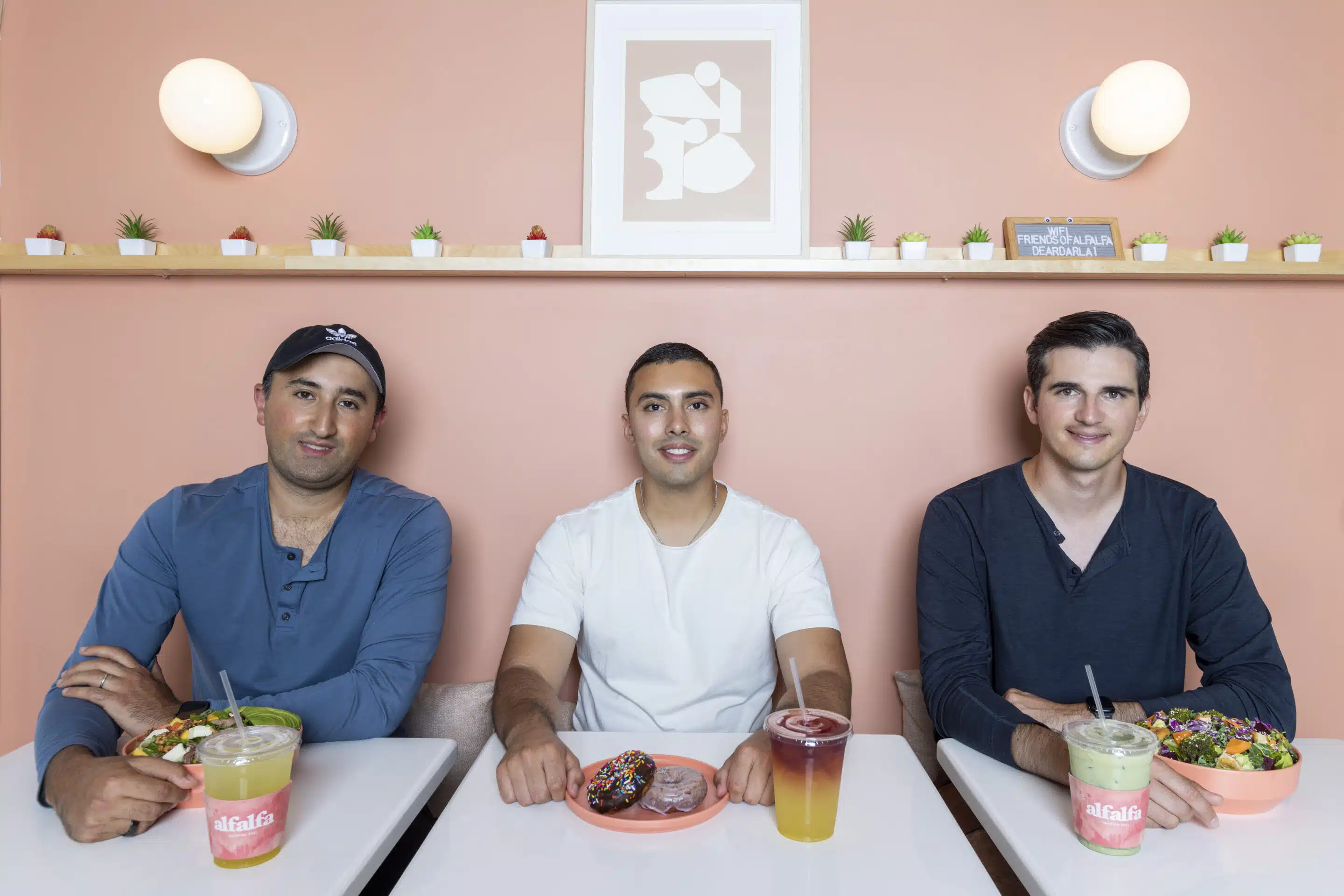
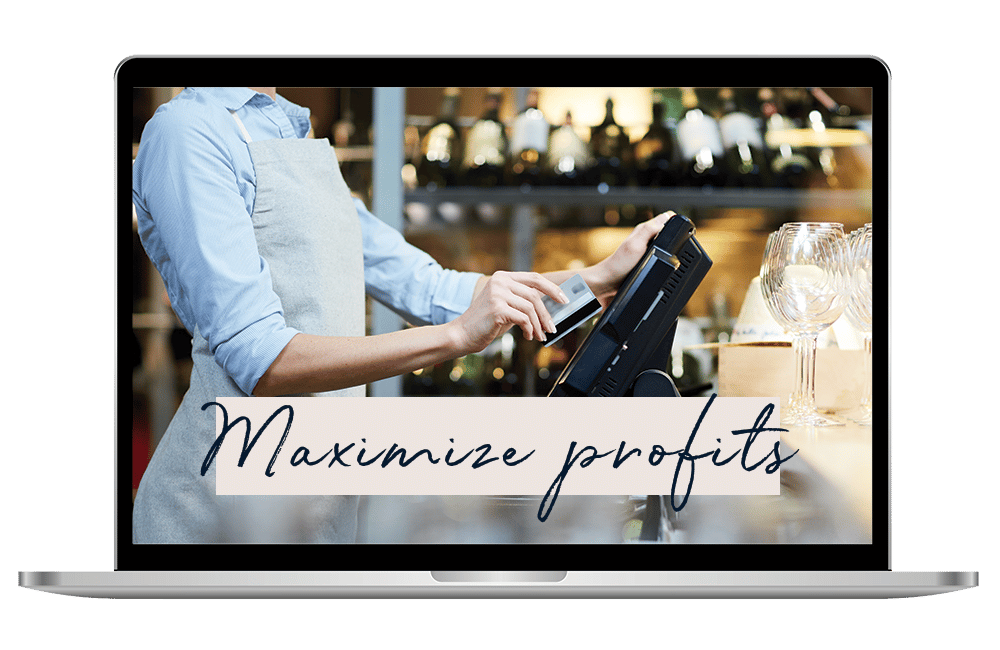
The three costly mistakes you could unknowingly be making?
Find out in this FREE guide and restaurant assessment specifically designed to reveal the unexpected hurdles standing between you and exponential business growth.
Thank You To Our Sponsors
Did You Know That 7 out of 10 Adults Dine Out To Celebrate Birthdays?
You Can Easily Capture This Lucrative Business!
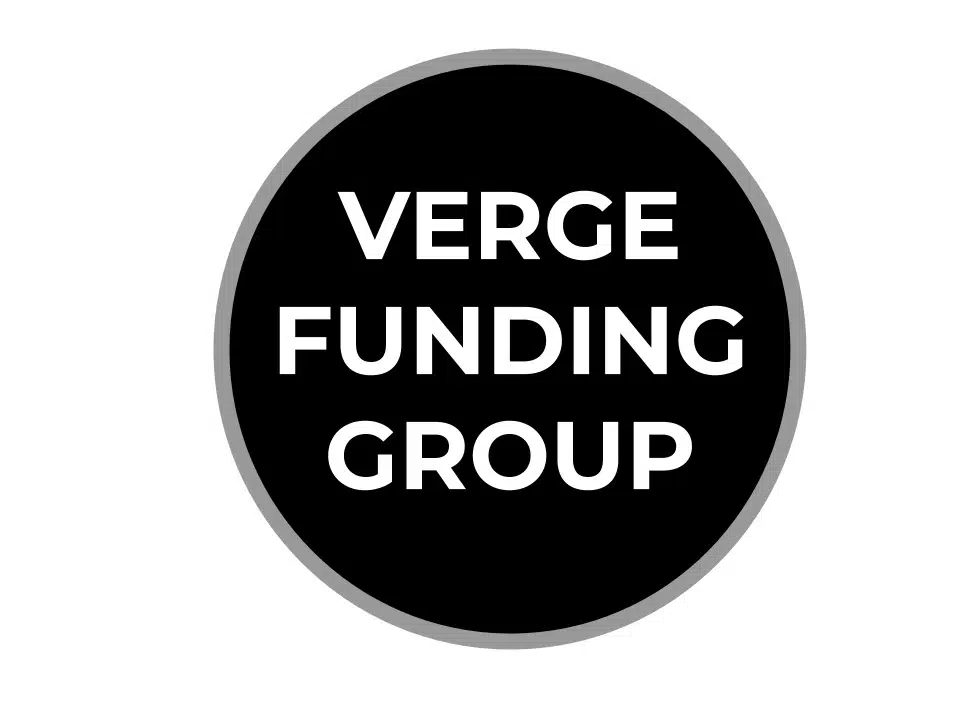
Find Out How Much Your Business Is Due Back from the ERC Program
Set Up a Call with Karen the Owner of Verge Funding
Want to become a podcast sponsor?
Please get in touch with Roger at roger@restaurantrockstars.com
